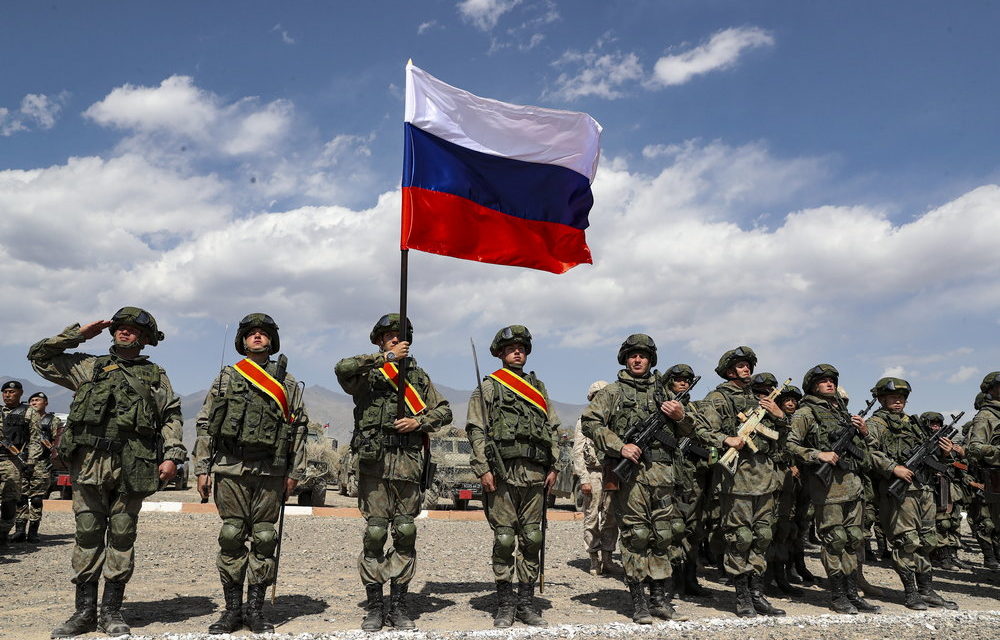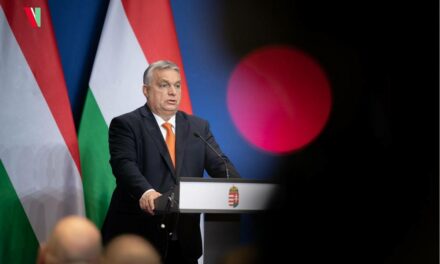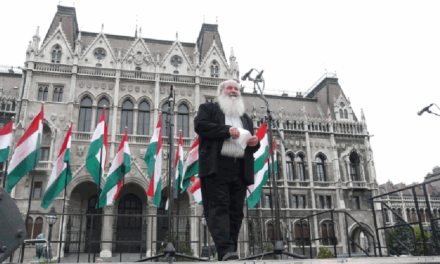With the current situation, the current Cold War wave has probably reached its peak. The Americans have made it clear that the unipolar game has spread so far, they will no longer fight for Ukraine.
Every shady road will tell you,
ask the birch and pine,
the wide field blessed with silence,
the soldier who rests
anonymously under the birch,
and call his son as a witness:
does Moscow want war.
Yevgeny Yevtusenko wrote this poem in 1961 (translation by Gábor Garai, better than the original), when the Cold War was just reaching its peak. A year earlier, the Russians had shot down the U2 spy plane, which the Americans claimed did not exist, but the Russians showed the wreckage and the plane's pilot, Francis Gary Powers, who, quite reprehensibly, did not swallow the poison pill intended for such an eventuality . The Cuban Missile Crisis came a year later, when we excitedly counted the days until the Russian ships carrying nuclear missiles would reach the American blockade around Cuba. Of course, the crisis did not start with the missiles installed in Cuba, but with America installing nuclear missiles near the Russian borders, in Turkey.
The NATO Secretary General held a press conference on January 26, 2022, at which he called on Russia to withdraw 100,000 troops stationed near the Ukrainian borders and start negotiations with NATO. But this conflict did not begin with the deployment of Russian troops to the Ukrainian borders. Deep deep is the well of the past, where do we begin? Perhaps we should start with the fact that when Mikhail Gorbachev agreed to the unification of Germany and NATO membership, he did so on the condition, as stated by the then US Secretary of State James Baker, that NATO would not push its sphere of interests eastward even one centimeter.
However, the Clinton administration quickly and easily overcame the promises of its predecessor, Bush Sr., and NATO began its eastward push. Within a decade, all Central European countries became NATO members, and in 2004, with the accession of Estonia, Latvia and Lithuania, NATO reached the territory of the former Soviet Union. The struggle for power spread to Ukraine, and all of this was fulfilled in the "Orange Revolutions".
According to The Guardian, the US State Department, USAID, the National Democratic Institute, the International Republican Institute, the Bilderberg Group, Freedom House and György Soros' Open Society Institute were behind this. According to Victoria Nuland, an associate of the former and current US Secretary of State, in a speech given in December 2013, since Ukraine's independence in 1991, the United States has invested five billion dollars in the establishment of "democratic" (ie, Western-friendly) institutions in Ukraine.
It is worth mentioning that shortly after the February 2014 coup, Henry Kissinger, who played a key role in the "détente" (détente) process, i.e. ending the Cold War with the Soviet Union, recognizing China and ending the Vietnam War, in the March 5 issue of the Washington Post warns the West that Ukraine is not simply another country for Russia, but an integral part of Russian history.
Kissinger takes the stand that Ukraine cannot be a NATO country and that Russia's interests in the Black Sea Fleet - that is, the use of the Sevastopol military port - must be clearly recognized.
Considering the current situation, perhaps it is worth quoting the opening lines of the cited article verbatim: "The public debate about Ukraine is about confrontation. But do we know where we are going? In my lifetime I have seen four wars that we started with great enthusiasm and public support, none of which we knew how to end, and three of which we withdrew unilaterally. The test of politics is how it ends, not how it begins.
The Ukrainian question is too often presented as a showdown: Ukraine joins the East or the West. But if Ukraine wants to survive and grow, it cannot be an outpost of one side against the other – it must act as a bridge between them.”
There is nothing to add to this.
The veteran politician, who repeatedly stood up against NATO's eastern expansion, really offered a solution that could have ensured lasting peace, but "America" was not interested in that. But the question is, who is America, Donald Trump's America or Viktoria Nuland's America? It may have been decades ago, back in the days of Nixon and Kissinger, that an American president could determine the main foreign policy priorities himself, but the question is, is this still the case today? The answer is unlikely. Even in the case of Clinton, the situation was that she herself was reluctant to expand NATO, but she was persuaded. Who? A larger study would be required to analyze the situation between 1990 and 1996, in which NATO's eastern expansion was decided.
It would be a difficult and time-consuming undertaking to reveal the role of the Pentagon's sounding boards, the Council on Foreign Relations, the CIA and the media empires that dominate America and Europe in general. However, some names can be mentioned in the present scope. This is the case of Charles Krauthammer, who in 1990, sensing the final weakening of the Soviet Union, formulated the principles of a unipolar world order led by America, including the fact that America must lead the unipolar world with a strong will, laying down its rules and preparing to enforce them. Krauthammer was a commentator for leading American newspapers and a speechwriter for leading politicians.
Another key figure is Zbigniew Brzezinski, Jimmy Carter's chief national security adviser, who strongly supported NATO's eastward expansion, as revealed in his 1995 article in Foreign Affairs (A Plan for Europe: How to Expand NATO expand NATO). Of course, it is not that one commentator influenced politics, but rather that they systematized and put into writing the ideas that were dominant in the Council on Foreign Relations or among the owners of the leading newspapers. The articles published in Foreign Affairs, a publication of the Council on Foreign Relations, serve to heighten the tension even today.
Of course, there were opponents. From this point of view, it is interesting to compare an article from 1996, published by the conservative CATO Institute, with an article also from them, dated January 24, 2022, so almost three decades have passed between the two. Its first author (Stanley Kober) says that expanding NATO to the east would be a particularly foolish move because it would strengthen the political forces in Moscow that want to restore the Soviet Union for security reasons. And the author of the current article (Justin Logan) warns that if the main demand of the Russians is that Ukraine should not be a NATO member, and NATO does not want to include Ukraine or fight for it, then why can't it be said , that Ukraine will not become a NATO member? And anyway, what does the average American have to do with what is happening in Ukraine, does it increase their security?
These two approaches clearly show the contrast between the conservatives representing American interests and the custodians of global power in American politics.
With the current situation, the current Cold War wave has probably reached its peak. The Americans have made it clear that the unipolar game has spread so far, they will no longer fight for Ukraine. It has also become clear to Ukraine that they cannot count on help in the event of a war. Moscow does not want war, and Kiev has no interest either. NATO, on the other hand, achieved its goal, which Lord Hastings Lionel Ismay, NATO's first Secretary General, formulated as follows: to keep the Americans in, the Russians out, and the Germans down. Closer German-Russian cooperation was again off the agenda for a while.
Author: Károly Lóránt, economist, advisor to the National Forum
Source: Magyar Hírlap
Photo: MTI/EPA/Igor Kovalenko












